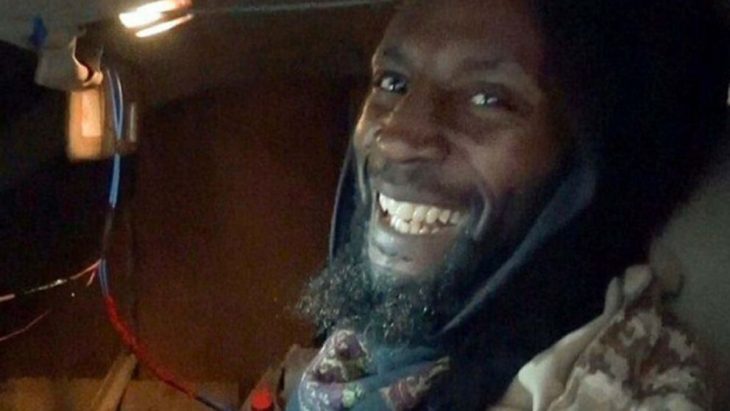Ronald Fiddler doesn’t have quite the same ring to it as Abu-Zakariya al-Britani, which perhaps explains the British Isis fighter’s decision to change his name. Either way, Fiddler’s death during a car bomb attack in Mosul has sparked an almighty row. It’s emerged that Fiddler is a former Guantanamo Bay detainee who was paid compensation – reportedly as much as £1m – by the Government after being released. The Times says the worrying element of this case is the flaw exposed in the way jihadists are monitored; ‘A chain of blunders’ allowed Fiddler to travel to Syria to join Isis in the first place, the paper says, and it’s difficult not to see in the final photograph of the 50-year-old, as he drives to his death, the face of someone ’laughing at the West’. What is troubling about this case is that if it’s true counter-terrorism experts find it tricky to track down the needle in the haystack, Fiddler ‘was a very obvious bushel’. We might well look back at the ‘life and death’ of al-Britani as a sign of trouble to come; as Isis’ grip on Mosul weakens by the day, ‘many of the estimated 400 British-born militants may choose flight rather than fight’ says the Times. We must be ‘vigilant in dealing with this imminent threat’, the paper concludes.
The Daily Telegraph agrees that all this squabbling over past mistakes isn’t helpful. Instead of ‘political point scoring’ we should ask why ‘a man considered dangerous by British intelligence officers was not just at large but handed a huge sum of public money’. So why did Fiddler get a payout? The logic seems to be, suggests the Telegraph, that it was a price the British Government had to pay in order to prevent ‘the publication of state secrets’ in court. Since 2010, the law has changed – ‘but that law has not been tested’ the paper points out. On a more fundamental level, ‘a lack of proper exit checks at British ports remains a worry’. There is clearly a lot for politicians to think about – and the Telegraph suggests that instead of arguing ‘finding a way to deal with those who threaten us without clearly breaking the law in future would be a better use of politicians’ time’.
‘We have no way of knowing whether the trauma of his treatment’ at Guantanamo Bay led to Fiddler’s decision to join Isis, says the Guardian. But whatever the motivation, it’s a secondary consideration, the paper argues. The Guardian disagrees with the Telegraph’s analysis, suggesting that the idea that he was paid compensation to prevent state secrets being spilled is ‘unconvincing’. Instead, for the Guardian, it’s clear that ‘the settlement saved the government from embarrassing revelations about its acquiescence in and enabling of the torture of one of its own citizens’. The payouts were clearly, the paper argues, a bid to ‘repair the damage done to Britain’ if it emerged ‘the rule of law and protection of human rights’ had been undermined. We should remember this, the Guardian concludes, pointing out that if Trump acts on his word to ‘load up’ Guantanamo Bay again with inmates, we’d be making trouble for ourselves down the line, After all, the paper says, ‘the lesson from Harith’s case is to be more not less scrupulous in our treatment of terrorism suspects’.







Comments